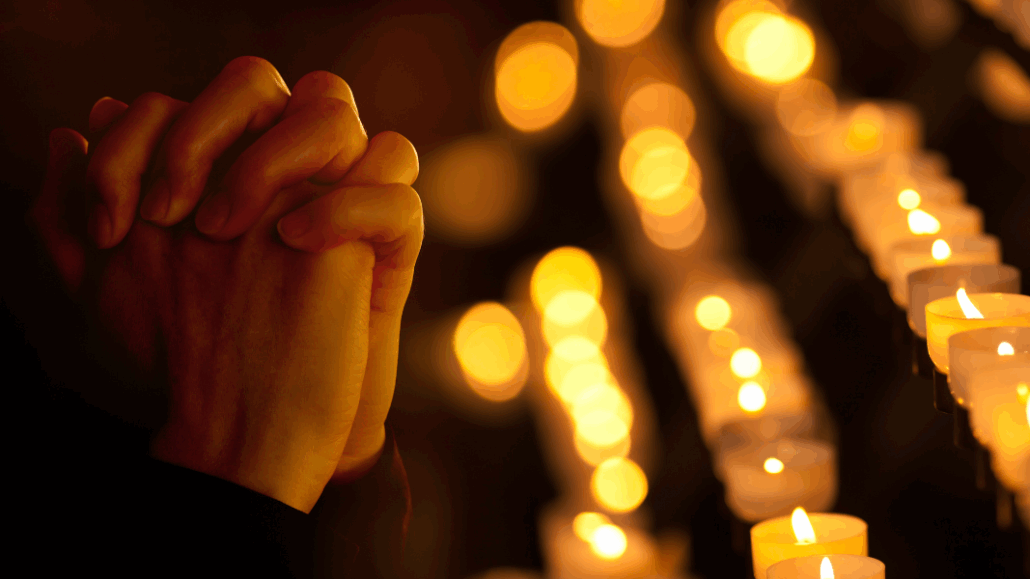For many, the social support and corporate expression of spirituality associated with religion can be a powerful protective factor that can scaffold participants toward improved mental health. However, religious leaders or institutions can harness and abuse that same power in ways that harm or traumatize participants. In this blog, we will explore the causes of religious trauma and how it shows up in the body.
What is Religious Trauma?
Religious trauma is a physiological response to an adverse religious experience(s). The Religious Trauma Institute defines an Adverse Religious Experience(s) (ARE) as “any experience of a religious belief, practice, or structure that undermines an individual’s sense of safety or autonomy and/or negatively impacts their physical, social, emotional, relational, or psychological well-being.” ARE’s can cause individuals to feel trapped in abusive cycles. This is often the result of religious ideology and the use of sacred texts or doctrines as a means of maintaining control. Because of the subversive nature of ARE’s, many people with religious trauma have repeated aversive experiences.
Religious leaders can cause trauma when they abuse their power to sexually or emotionally manipulate others. Religious groups can also inflict trauma by using their belief systems to discriminate based on gender, race, or sexual orientation. It is important to note that not everyone who experiences ARE’s will experience religious traumatization. Our bodies and minds determine whether an adverse religious experience becomes traumatic based on how they respond to it.

How Trauma Affects the Nervous System
A regulated nervous system helps us feel safe and comfortable connecting. When the autonomic nervous system senses danger, it triggers the physiological response of fight or flight in the sympathetic nervous system. This response is an adaptive reaction. It is the body’s way of communicating to us that we are not safe and should leave the environment or situation we are in. We have all experienced the effects of fight or flight at one time or another. Imagine seeing a rattlesnake or a poisonous spider. Your immediate physical reaction might be to run or find a way to defend yourself. This reaction is your body communicating to your brain that you are in a potentially dangerous situation.
In some instances, the fight or flight response can be a literal lifesaver. However, if we are unable to protect ourselves or escape an unsafe situation, our parasympathetic nervous system may become active. When this happens, the body’s response is to freeze. At this point, our bodies are telling us that we are not only in danger, but our life is at risk. When this freeze happens, our bodily functions (i.e., breath, digestion, and heart rate) slow down. This can lead to dissociation or feelings of disconnection from the self. It is as though the body is playing dead as a means of protecting itself.
Someone who experiences a traumatic event or repeated traumatic events may feel as though their body is trapped in one of these physiological states. They may frequently perceive danger even when there is no threat. This continual dysregulation of the nervous system can lead to emotional and physical dysregulation, anxiety, depression, sleep loss, and emotional outbursts. Religious trauma is a combination of these various physical symptoms that can be linked to an Adverse Religious Experience(s).
Read more about the effects of trauma on the body and brain here.
Religious Trauma and Existential Crisis
Religious trauma is highly nuanced and often leads to identity confusion and existential crisis. When abuse occurs in a religious framework, the abuse is often justified by the sacred. This may lead the person who is being abused to associate their experiences or their abuser with their understanding of God. This may become increasingly disorienting over time. It can also lead to spiritual confusion, a crisis of faith, and a questioning of the meaning behind their adverse experiences. Additionally, the person being exploited may experience high levels of shame related to their AREs and the existential crisis itself. This shame often leads to feelings of loneliness and isolation.
The existential crisis can be further aggravated by a fear of the loss of social support and further isolation from the religious community at large. Some may choose to redefine spirituality within the context of their religious belief system. Others may find that they need to leave their religious beliefs and community behind entirely. For many, the loss of a spiritual community resulting from an existential crisis may evoke feelings of grief and loss. Religious trauma and existential crisis can be isolating and painful. Those who are grappling with religious trauma and existential crisis may be prime candidates for a trauma-informed therapy group with others who have experienced AREs
Supporting Your Dysregulated Nervous System
Religious trauma can lead to a dysregulated nervous system. When this occurs, there are several bottom-up approaches to support the cultivation of a healthier and more regulated self. Some of these approaches may include breathing exercises, body scans, progressive muscle relaxation, yoga, exercise, and meditation. All these approaches are ways to reintegrate your brain and calm your dysregulated nervous system when you feel out of control due to religious trauma. While these somatic approaches are helpful for effectively treating physiological trauma responses, it is important to note that healing from religious trauma can be a complex and nonlinear process that takes time. It is important to have grace for the process and recognize that healing may not be a single destination, but an ongoing journey.
If you are experiencing the effects of religious trauma, it is important to find a trauma-informed therapist to support you in your healing process. Religious trauma can lead to a dysregulated nervous system, existential crisis, and a deep sense of grief and loss. Talking about these big topics can feel uncomfortable and scary, but no one should have to go through it alone.
Curious about exploring religious trauma in therapy? Reach out to myTherapyNYC to find out which of our therapists would be a good fit for you!
Have you had an Adverse Religious Experience? Join the conversation in the comments below!
- When Faith Hurts: Identifying and Naming Religious Trauma - May 15, 2025




3 comments
There can be so many challenges when trying to face and recover from religious trauma. I really appreciated your discussion of how the trauma can impact the nervous system and how the aftermath can lead to shifts in or a loss of support systems further compounding the situation. Thank you for the insightful post!
Thank you so much, Joe!
Thank you so much, Joe!